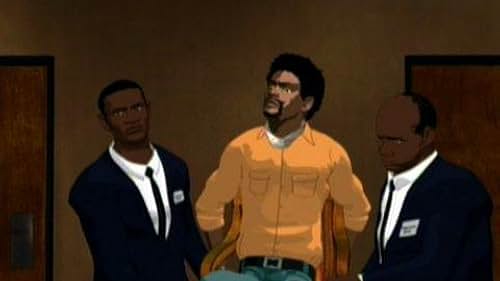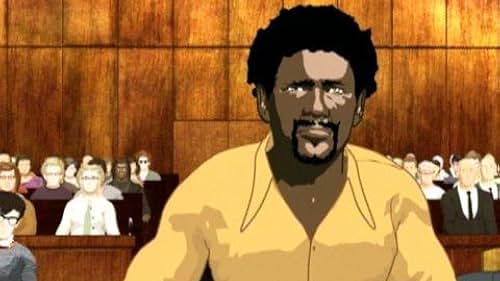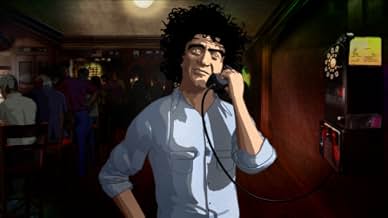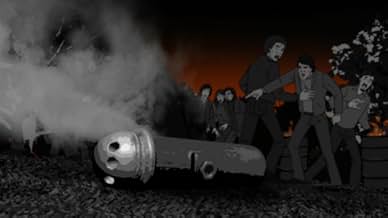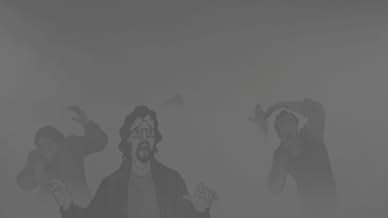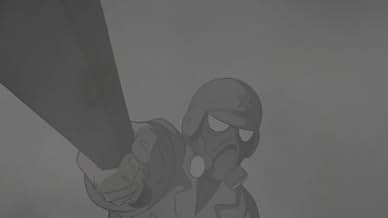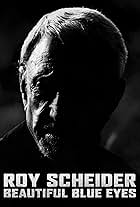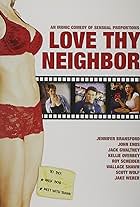IMDb RATING
7.3/10
1.5K
YOUR RATING
Archival footage, animation, and music are used to look back at the eight anti-war protesters who were put on trial following the 1968 Democratic National Convention.Archival footage, animation, and music are used to look back at the eight anti-war protesters who were put on trial following the 1968 Democratic National Convention.Archival footage, animation, and music are used to look back at the eight anti-war protesters who were put on trial following the 1968 Democratic National Convention.
- Awards
- 3 wins & 6 nominations total
Jeffrey Wright
- Bobby Seale
- (voice)
Nick Nolte
- Thomas Foran
- (voice)
Hank Azaria
- Abbie Hoffman
- (voice)
- …
Dylan Baker
- David Dellinger
- (voice)
- …
Mark Ruffalo
- Jerry Rubin
- (voice)
Debra Eisenstadt
- Mary Ellen Dahl
- (voice)
- …
Lloyd Floyd
- Robert Pierson
- (voice)
- …
James Urbaniak
- Rennie Davis
- (voice)
- …
Leonard Weinglass
- Self
- (voice)
David Boat
- Norman Mailer
- (voice)
- …
Julian Rebolledo
- Reporter 2
- (voice)
- (as Julian Dean)
Daniel Hagen
- Bailiff
- (voice)
- (as Dan Hagen)
Roger Jackson
- Marshal 2
- (voice)
- (as Roger L. Jackson)
- …
Ted Marcoux
- Robert Murray
- (voice)
- Director
- Writer
- All cast & crew
- Production, box office & more at IMDbPro
Featured reviews
This is a really poorly movie. It may have been an interesting time in Amerikan history but this movie is far from interesting.
The makers chose to use really bad cartoons and actors to play the Chicago defendants. It doesn't work. The cartoons look nothing like the characters and their dialog is forced.
Frankly, a way better movie could have been made using only archival footage of the characters involved. It could have been truly compelling. Instead we got a really boring piece of celluloid that isn't even truthful to the events at hand.
Throughout the movie there are shots of the characters speaking to "crowds" and shots of massive numbers of people rallying. This is phony. It never happened. They inserted footage from other rallies to try to pretend these guys had such a following!
Shame on you.
And of course they never even mentioned that Jerry Rubin became a rabid capitalist after jail time ( I met him during his networking days in NYC) and Abbie Hoffman (who I always thought was the real deal) started dealing coke big time, went on the lam for years.
The makers chose to use really bad cartoons and actors to play the Chicago defendants. It doesn't work. The cartoons look nothing like the characters and their dialog is forced.
Frankly, a way better movie could have been made using only archival footage of the characters involved. It could have been truly compelling. Instead we got a really boring piece of celluloid that isn't even truthful to the events at hand.
Throughout the movie there are shots of the characters speaking to "crowds" and shots of massive numbers of people rallying. This is phony. It never happened. They inserted footage from other rallies to try to pretend these guys had such a following!
Shame on you.
And of course they never even mentioned that Jerry Rubin became a rabid capitalist after jail time ( I met him during his networking days in NYC) and Abbie Hoffman (who I always thought was the real deal) started dealing coke big time, went on the lam for years.
Brett Morgan's Chicago 10 might not deliver any groundbreaking revelations about one of the most notorious of protests-gone-bad sagas in American history, where after four days and nights (mostly) non-violent protesters and loaded-for-bear police clashed horrifically on the streets of Chicago and then the masterminds in the 'Yippies' (i.e. Abbie Hoffman, Jerry Rubin) were put on a trial where all were sent to some jail time. It's not about revelations, per-say, though one might say that the story itself- encompassing 1968's volcanic political and societal tumult- could be a revelation for some younger audience members numbed out by cable news and desensitization.
What it's about is presentation, of taking apart agitprop of the period, assembling it together with rotoscoping of the Chicago 7 trial, music from the likes of Rage Against the Machine, Eminem and the Beastie Boys, and loads of raw footage documenting much of the actual on-the-street and behind-closed-doors action in Chicago. It's probably the most striking sort one's seen since The Filth and the Fury, however in a context of instead 70s punk rock 1968's culmination of anti-war demonstration.
It's an ugly, breathtaking and (unlikely) savagely funny movie, where older viewers can experience their memories of a time and place in a sometimes bizarre and sometimes sobering context (of hindsight being '20-20') and younger viewers (i.e. guys and gals in their 20s and 30s) get a peek at an era that seems all the more ballsy in the perspective of America's involvement in Iraq. Morgan also does something a little dangerous, but successful, in portraying the "heroes" for all they were in this time and place: stalwart idealists in the guise of immature not-totally American insurgents whose 'spiritual experimenter' was oft-meditating poet-dude Allen Ginsberg. What to think of these men like Abbie Hoffmann and the leader of the Black Panthers? A little biased? Perhaps - but in light of how the trial went down, why carp?
It's editing is fast-paced, but not too much so, and its technique of animation is multi-faceted. On top of the rotoscoping (some of the best in recent memory along with A Scanner Darkly), there's a night-time demonstration done in 2-D, like something out of a nightmare with its somewhat primitive movement, and then the figures of the Chicago 7 appearing before crowds (usually with great voice-work from Hank Azaria, Dylan Baker and Mark Ruffalo, plus a great career finale from Roy Scheider as the cantankerous judge in the trial). It's the kind of visual assault that for the prepared is like a bit of ironic bliss.
If you've seen the trailer, or know a bit about the trial, or about Chicago in 68 (which Hunter S. Thompson, looking back in just 1972, said brought him to tears), or just about the friction between anti and the establishment, you'll know if this is for you. It certainly is like nothing else you'll see this year as a piece of sublime, subversive history. 9.5/10
What it's about is presentation, of taking apart agitprop of the period, assembling it together with rotoscoping of the Chicago 7 trial, music from the likes of Rage Against the Machine, Eminem and the Beastie Boys, and loads of raw footage documenting much of the actual on-the-street and behind-closed-doors action in Chicago. It's probably the most striking sort one's seen since The Filth and the Fury, however in a context of instead 70s punk rock 1968's culmination of anti-war demonstration.
It's an ugly, breathtaking and (unlikely) savagely funny movie, where older viewers can experience their memories of a time and place in a sometimes bizarre and sometimes sobering context (of hindsight being '20-20') and younger viewers (i.e. guys and gals in their 20s and 30s) get a peek at an era that seems all the more ballsy in the perspective of America's involvement in Iraq. Morgan also does something a little dangerous, but successful, in portraying the "heroes" for all they were in this time and place: stalwart idealists in the guise of immature not-totally American insurgents whose 'spiritual experimenter' was oft-meditating poet-dude Allen Ginsberg. What to think of these men like Abbie Hoffmann and the leader of the Black Panthers? A little biased? Perhaps - but in light of how the trial went down, why carp?
It's editing is fast-paced, but not too much so, and its technique of animation is multi-faceted. On top of the rotoscoping (some of the best in recent memory along with A Scanner Darkly), there's a night-time demonstration done in 2-D, like something out of a nightmare with its somewhat primitive movement, and then the figures of the Chicago 7 appearing before crowds (usually with great voice-work from Hank Azaria, Dylan Baker and Mark Ruffalo, plus a great career finale from Roy Scheider as the cantankerous judge in the trial). It's the kind of visual assault that for the prepared is like a bit of ironic bliss.
If you've seen the trailer, or know a bit about the trial, or about Chicago in 68 (which Hunter S. Thompson, looking back in just 1972, said brought him to tears), or just about the friction between anti and the establishment, you'll know if this is for you. It certainly is like nothing else you'll see this year as a piece of sublime, subversive history. 9.5/10
In 1968 thousands of young people got angry and rioted as an unpopular President expanded an unpopular war overseas. As Ryan Harvey sung recently "The Times They *Aren't* A Chaning". The documentary footage from the protests is amazing, timely, and very reminiscent of news footage from recent political protests in North America. The animated sequences could have been better. They have the look of a very low budget show on Cartoon Network. Occasionally, a different kind of animation is used and this one is less realistic but much more effective. I'm not sure why this type of animation wasn't used throughout the trial sequences.
Roy Scheider I must add was very effective and creepy as Judge Hoffman, the authoritarian and one-sided judge who presided over the trial.
The movie is a reminder that things aren't changing but it's always important to fight.
Roy Scheider I must add was very effective and creepy as Judge Hoffman, the authoritarian and one-sided judge who presided over the trial.
The movie is a reminder that things aren't changing but it's always important to fight.
I am not usually a fan of added-in animation. There are a few movies, Pink Floyd's extraordinary antiWar film 'The Wall' one of them, in which the animation provides graphic imagery to enhance the surreal feeling for the viewer. But in that movie the imagery is mostly a nod to Jungian archetypes morphing as it does from animal form to out-of-control mechanical killing machines. There are times when it works beautifully to complement the protagonist's suicidal angst, and times when it doesn't work as well, but it meshes well with the score to heighten the mood of the music.
In 'Chicago 10' the animation provides the courtroom re-enactment to fill in the gap of not having actual courtroom video. The actual human beings are rendered in cartoon form.
Does it succeed?-- for me it isn't as powerful as having live actors either impersonate or interpolate the roles of the courtroom persona. I think for me it would have worked better to have re-done those scenes with actors. But . . .
But I want to say how powerful the movie is. . . I knew the outcome, I am of that time----but the tension continued to accumulate as the trial and the actual scenes wove a story of an overview of America in the heartland in 1968.
This should be required viewing for anyone born after 1965 and maybe earlier. It has always been difficult for me to describe to my children how polarized the nation was during this period... I've never felt I could generate for them that vicarious tension necessary for understanding. This movie accomplishes that. The animation isn't to my taste--but it works nonetheless. Would it have been more powerful if real actors were used for the court scenes?? Maybe. And maybe it is that cartoonish abstraction from reality that the filmmakers were trying to achieve, at an event which perfectly embodied the insanity of those who were siding with militarism while it was killing their own. There is enough actual video used to allow a lot of the film to show us the people involved as they were then, and what happened to them, with the animation overlaying.
I think that more footage of the Vietnam war, the obscene news footage that Americans were exposed to nightly, might have been useful too, in recreating the ambiance of that time. Quite the contrast to the sanitized photojournalism of the current war in Iraq which stays conveniently and purposefully out of view, out of mind for American citizens since 2003, the Vietnam drama took place live in primetime, and the shockingly visceral quality of that televised carnage finally overcame the credibility of government rhetoric about stopping the Red menace.
Thank you for this look, and feeling, back in time. Well done.
In 'Chicago 10' the animation provides the courtroom re-enactment to fill in the gap of not having actual courtroom video. The actual human beings are rendered in cartoon form.
Does it succeed?-- for me it isn't as powerful as having live actors either impersonate or interpolate the roles of the courtroom persona. I think for me it would have worked better to have re-done those scenes with actors. But . . .
But I want to say how powerful the movie is. . . I knew the outcome, I am of that time----but the tension continued to accumulate as the trial and the actual scenes wove a story of an overview of America in the heartland in 1968.
This should be required viewing for anyone born after 1965 and maybe earlier. It has always been difficult for me to describe to my children how polarized the nation was during this period... I've never felt I could generate for them that vicarious tension necessary for understanding. This movie accomplishes that. The animation isn't to my taste--but it works nonetheless. Would it have been more powerful if real actors were used for the court scenes?? Maybe. And maybe it is that cartoonish abstraction from reality that the filmmakers were trying to achieve, at an event which perfectly embodied the insanity of those who were siding with militarism while it was killing their own. There is enough actual video used to allow a lot of the film to show us the people involved as they were then, and what happened to them, with the animation overlaying.
I think that more footage of the Vietnam war, the obscene news footage that Americans were exposed to nightly, might have been useful too, in recreating the ambiance of that time. Quite the contrast to the sanitized photojournalism of the current war in Iraq which stays conveniently and purposefully out of view, out of mind for American citizens since 2003, the Vietnam drama took place live in primetime, and the shockingly visceral quality of that televised carnage finally overcame the credibility of government rhetoric about stopping the Red menace.
Thank you for this look, and feeling, back in time. Well done.
The story telling in Chicago 10 is inviting. Once inside it transforms the audience into witnesses. With your own senses you see what many have for decades refused to see. It is a work well done. 1968 was a year that changed the US of A as much as May '68 changed France. The movie is not an history lesson. This movie brings us into that time in a way that allows us to reflect not only upon what happened in Chicago, but moreover what was yet to come in the USA. The trial of the Chicago 7 almost did not happen. Ramsey Clark the US Attorney General until January 20, 1969 was not going to allow this case to be prosecuted. After January 20th, Nixon's Attorney General John Mitchell made sure that the silent majority got their show trial. It backfired. The rest is in the movie.
Storyline
Did you know
- TriviaNick Nolte and Liev Schreiber both played the roles Gregory Peck played in the remakes of Cape Fear (1962/1991) and The Omen (1976/2006).
- How long is Chicago 10?Powered by Alexa
Details
- Release date
- Country of origin
- Official site
- Language
- Also known as
- Chicago 10: Speak Your Peace
- Filming locations
- Production companies
- See more company credits at IMDbPro
Box office
- Gross US & Canada
- $177,490
- Opening weekend US & Canada
- $42,724
- Mar 2, 2008
- Gross worldwide
- $177,490
- Runtime1 hour 50 minutes
- Color
- Sound mix
- Aspect ratio
- 1.85 : 1
Contribute to this page
Suggest an edit or add missing content





